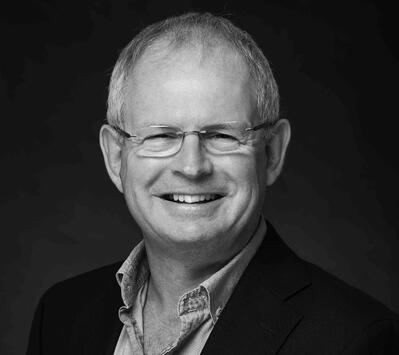Who is Tim Thackrah?
Having a diverse and varied career gives one a vast practical knowledge and skills base. I am a serial entrepreneur and clinician (dental and implant surgeon, own and run a multi million clinic) and have started and run a diverse group of businesses over my 40 years in business from healthcare to technology to marketing as well as passively and successfully invested in the start up world as active investor, advisor, mentor and coach. I have developed product based healthcare businesses as well as business management software businesses, lectured internationally post gradually in dental healthcare, author of two healthcare books, run post graduate programmes ,run taught sales teams, been involved with coaching entrepreneurs. I have found many connections between all of varied businesses and projects I am and have been involved in. See www.timthackrah.com
It’s quite impressive how many hats you have worn in your professional career. You’re a doctor, mentor, investor and advisor. How has your experience helped you build a successful career?
The diverse nature over the many projects helps me recognise similarities and patterns, most things are not as new as people want to make out – lots of ideas are just a rehash on the past.
What do you love most about angel investing? Throughout all your work as an angel investor, what is one value you feel you can always count on? How do you know what’s right?
What do you love most about angel investing? – I love being able to make a positive difference to the founders I am involved with, and to help them reach their massive transformative purpose, nothing can better than to know you have added value and made a positive difference. It is great to be able to give them the support through the roller coaster ride of running and developing a start up – being there in the dark times and helping them keep their confidence and believing in them when no one else will. My passion is to enable aspirational founders have a bigger and better future. I do this by exploring and generating new ideas that challenge conventional thinking : designing solutions, creating, communicating and orchestrating realistic growth plans.
The one value I provide is to tell the founders the truth – even when it is hard to hear – founders need a sound honest sounding board to help them make the right decisions. If I think they are going in the wrong direction I will tell them, always be aware of the cash situation! plus also when they are working in an area of low knowledge I will advise them to bring in some experts – you cannot know everything as a founder. How do you know whats right? – Obviously varied experience helps – though sometimes no one knows what is the right approach – you just have to be prepared to be wrong – -you have to brave and to test it in the market – and fail fast and learn and then iterate.
How do you helping start up founders thrive?
How do you help start up founders thrive? – by being honest and truthful , and supportive through the whole journey.
What is the focus of the startups that are under your umbrella? Tell us a little about startup you have invested in.
All of my start ups that I am involved with have a digital element and a positive global impact – here are 3 (see website )- Lets Do This – helping people get outside and exercise and connect, Cervest – Instant Access climate intelligence EV.energy – cheaper, greener, simpler electric vehicle charging.
How do you spot promising startup vs. bad ones? Are there common traits you see in a good first-time founder?
A start up I would get involved with is – early stage, the founder/s are passionate coachable they want to go global and have a large digital component to their plan. They have a clear massive transformative purpose with great positive social impact. Common traits – there are a few boxes to tick – slightly crazy (if they aren’t they wouldn’t be doing it) they have to have global ambition, be hard working, be a fast life long learner, be resilient, have grit, have humility and be passionate about what they are doing and know it is usually a 7-10 year journey. The founders have to be also be willing to listen, be a good communicator and know they will not have all the answers – they know they need to build a team to achieve a global ambition. They need to have worked hard and funded some of their own money in to it, and not expect to take large salaries.
Tell us what Europe can do to better support the entrepreneurial ecosystem?
All successful start ups were once very early stage with just an idea and a lot of hope and big dreams. They have to prove their idea – this takes a lot of perseverance and courage. These very early stage start ups are not suitable for VC’s – this is business angel territory – The one thing the UK did well was to introduce great tax breaks for early stage investment – SEIS and EIS. European countries would be well advised to look at what the UK did here and learn from it.
How do you stay inspired?
How do I stay inspired – by working with the great founders I am involved with – they inspire me – along with wanting to help other inspiring founders make a positive difference in the world.









